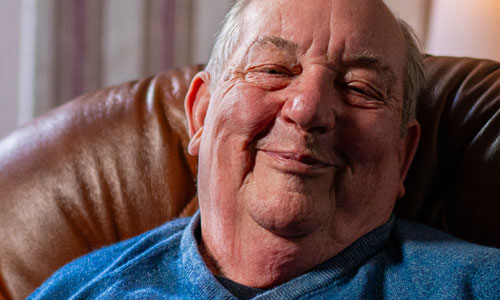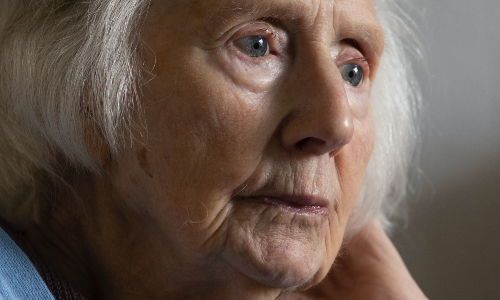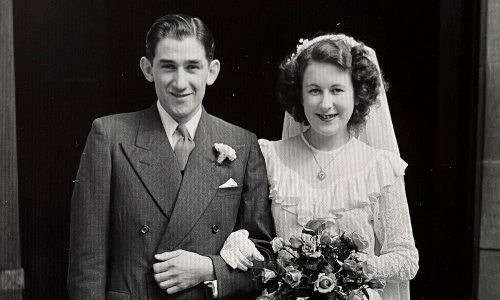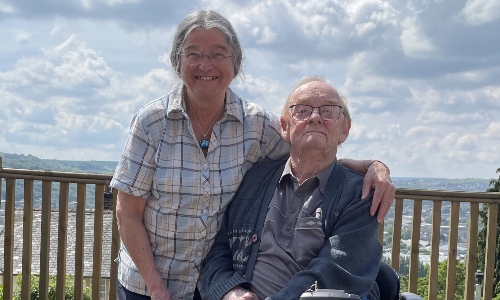Terry has always worked hard. As the oldest of nine children, he was called upon by his father to help provide for the family from a young age. In adulthood, Terry left the small Hertfordshire village he had grown up in and looked to broaden his horizons by joining the police.
There, Terry met his future wife. “When I met her family, who are from Malaysia, I was submerged in an entirely different culture,” says Terry. “Everybody's friendly, everybody introduces themselves. It made me much more accepting and accommodating.”
In the years that followed, Terry carried his open mind and strong work ethic through his varied careers. “I worked for an American corporation, and I was their negotiator throughout the middle and Far East,” he tells us. “I travelled extensively, making it a habit to learn about cultures and customs, and I’m a much more rounded person because of that. In my view, it’s people’s actions that matter – not where they come from.” Terry’s love of connecting with others also led to his favourite role – his position as a firefighter. “It felt like a very worthwhile job,” says Terry. “You’re a small, tight-knit team, and the gratitude from the people you’ve helped is almost overwhelming.”
So, when Terry was forced to bring his working days to a close two years ago, aged 70, he felt cut off from the world he’d spent so long connecting with. “I planned to keep working my current job until I was 75, then review the situation and maybe look for something easier to do,” explains Terry. “But it didn’t work out.”
Living with osteoarthritis in both hips had already made Terry’s most recent job as a delivery driver more difficult, but after being diagnosed with spinal compression, work became completely unmanageable. Terry was devastated. “When I got my diagnosis, I had to quit my job,” he says. Despite having surgery to relieve the compression on his spine, permanent damage had already been done – leaving Terry struggling to walk, with muscle weakness and constant pain.
A new situation
As well as having to cope with his health conditions, Terry also had to adjust to his abrupt loss in income. The spiralling cost of living crisis made this more difficult. “When I couldn’t work anymore, my state pension barely covered the bills,” Terry tells us. “Things got very, very tight.”
Having been evicted from a previous home when the landlord sold it, Terry felt especially worried about the impact his finances would have on his housing situation. “I didn't want to risk being evicted for a second time. Being put wherever they put the homeless, barely able to walk, and not able to use my hands at all, would have been frankly unimaginable.”
Terry had to make hard sacrifices to make ends meet – cutting back on food and surviving on just a can of beans or a sandwich every day. “I was hungry almost all the time, and my health was shot. I spent a lot of time sitting on the sofa watching television or thinking about how to get out of the mess I got myself into.”
“It’s not my fault, but it’s my body,” Terry continues, explaining how he viewed the situation. “So, it was my mess to sort out.”
Sharing the burden
Despite regularly chatting with his two daughters and five grandchildren, Terry kept his financial struggles a secret. “There’s nothing more important to me than self-reliance. And as I’ve got older, that’s got stronger and stronger. I didn’t want to drag anyone else into my problem.”
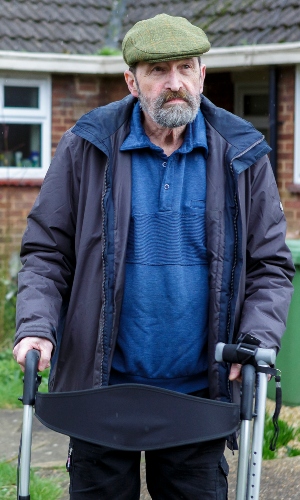
But eventually, Terry was left with no choice – and out of desperation, he contacted Age UK. “I was really reluctant. I tossed and turned about it for several days before I worked up the courage to make that initial phone call. But then, from that first phone call, Age UK were able to quickly turn the situation around.”
Chatting with Gemma, one of Age UK’s expert advisors, helped Terry to recognise the impact of his health conditions on his day-to-day life, and to explore the support available. “Gemma knew which questions to ask, and went through everything in so much detail. She did the whole Attendance Allowance application process for me, and made it all so simple.”
With the support of Age UK’s Benefits Entitlement Team, Terry has been able to claim the highest level of Attendance Allowance, as well as Pension Credit, Housing Benefit and Council Tax Support. The extra income – amounting to £13,000 a year – has enabled Terry to eat properly, buy mobility aids, and start to enjoy life again.
“Without the help of Age UK, I could have been in very serious trouble,” says Terry, while advising others who may feel uncomfortable asking for help. “If you’re like me – if you’re stubborn and you’re independent, and you place a lot of value on self-reliance – give yourself a break. Bite the bullet, pick up the phone and call Age UK, because if your situation can get any better, they’ll show you how.”
Do you know what you're entitled to?
Use our benefits calculator to learn more about the money you might be missing out on, or call our Advice Line on 0800 678 1602 for a Benefits Entitlement Check.


